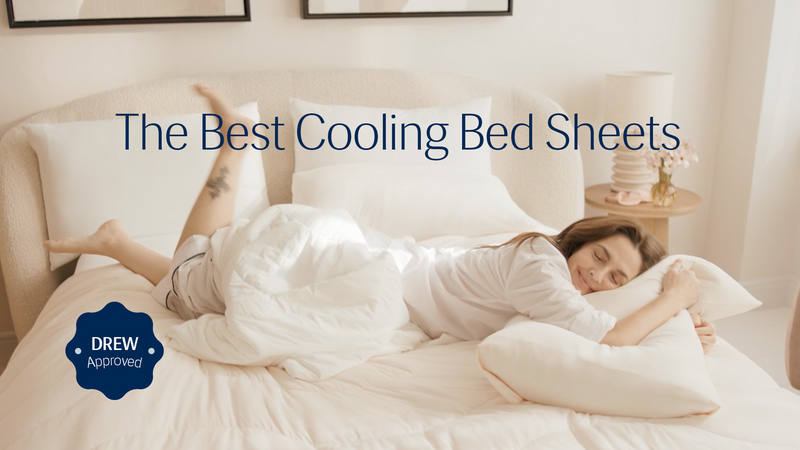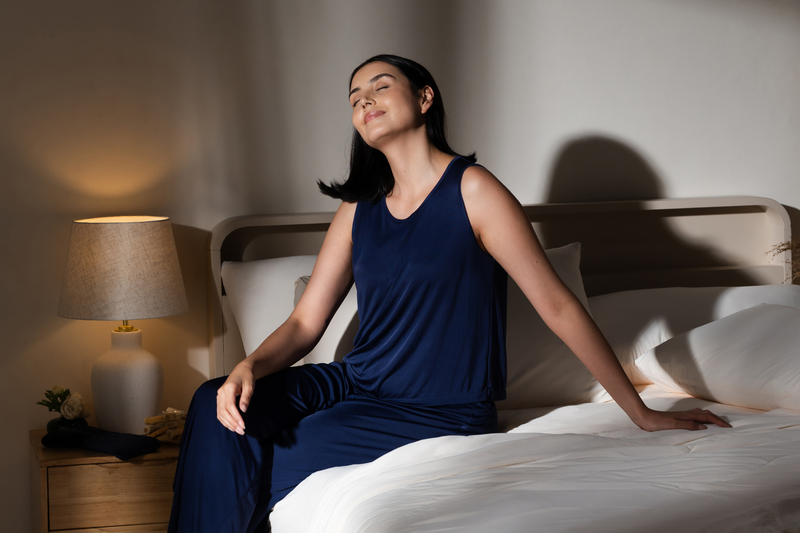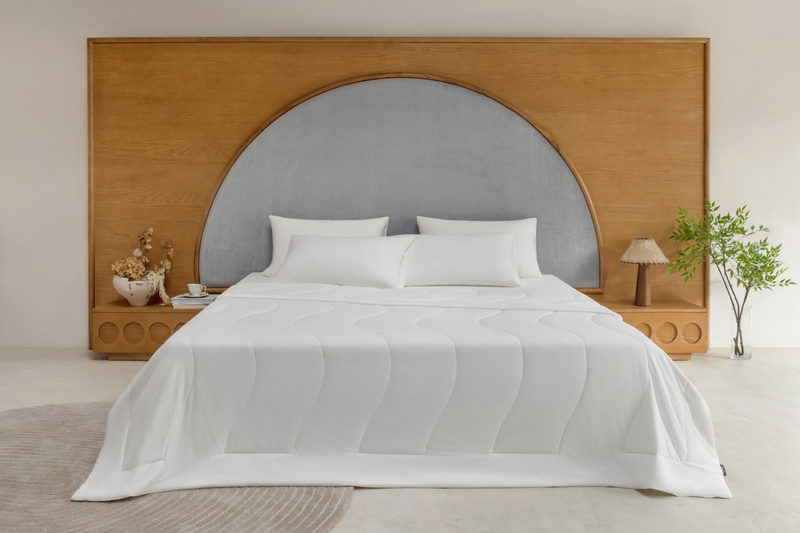Moisture Absorption vs. Moisture: Wicking Discover the Best Bedding Materials for a Better Night's Sleep
Moisture Absorption vs. Moisture Wicking: Discover the Best Bedding Materials for a Better Night's Sleep (Especially in the Summer)
The importance of choosing the right bedding materials for a comfortable and restful night's sleep is often overlooked. One of the most crucial factors in ensuring a comfortable sleep experience is the ability of your bedding to manage moisture effectively. In this blog, we'll explore the difference between moisture-absorbing and moisture-wicking materials, discuss the benefits of each type of bedding, and explain why moisture-wicking materials are particularly beneficial during the hot summer months.
Moisture-Absorbing Bedding Materials
Moisture-absorbing materials take in and hold moisture, such as sweat, within their fibers. While they can be helpful in maintaining a dry surface, they may become heavy, damp, and uncomfortable over time. Some common moisture-absorbing bedding materials include:
- Cotton: Cotton is a natural fiber known for its breathability and ability to absorb moisture. However, it may become damp and heavy when exposed to excessive moisture.
- Flannel: Flannel is a soft, warm material often used in winter bedding. It can absorb moisture well, but may become too warm and damp during hot or humid weather.
- Bamboo: Bamboo is another natural fiber that is soft and absorbent. It is more breathable than cotton, but still retains moisture within its fibers.
Moisture-Wicking Bedding Materials
Moisture-wicking materials actively draw moisture away from the skin and distribute it across the surface of the fabric, where it can evaporate more quickly. This keeps the fabric feeling dry and comfortable, even during hot and humid nights. Some popular moisture-wicking bedding materials include:
- Polyester: Polyester is a synthetic fabric known for its moisture-wicking properties. It is lightweight, durable, and quick-drying, making it an excellent choice for bedding.
- Tencel: Tencel is a sustainable, eco-friendly fabric made from wood pulp. It is exceptionally soft, breathable, and has excellent moisture-wicking capabilities.
- Evercool & Silvercool: are fabrics made from ultra-fine fibers. It is lightweight, soft, and has excellent moisture-wicking properties.
Why Moisture-Wicking Materials are Beneficial in the Summer
During the summer months, when temperatures rise and humidity levels increase, moisture management becomes even more critical for a comfortable night's sleep. Moisture-wicking materials are particularly advantageous in the summer due to the following reasons:
- Enhanced Comfort: As moisture-wicking materials actively draw sweat away from your skin and promote quick evaporation, they help you stay cool and dry throughout the night, even during the hottest weather.
- Temperature Regulation: Moisture-wicking bedding materials can help regulate your body temperature by preventing the buildup of sweat on your skin, which can cause overheating and discomfort.
- Reduced Night Sweats: By effectively managing moisture, moisture-wicking materials can minimize the occurrence of night sweats, allowing you to enjoy a more restful and uninterrupted sleep.
- Improved Hygiene: High humidity levels in the summer can lead to the growth of bacteria, mold, and mildew in your bedding. Moisture-wicking materials reduce the likelihood of these issues by keeping your bedding dry and fresh.
- Faster Drying Time: During the summer months, frequent washing and drying of bedding may be necessary due to the increased sweating. Moisture-wicking materials tend to dry faster than moisture-absorbing materials, making them more convenient and practical for busy households.
Conclusion
Selecting the right bedding materials is essential for a comfortable and restful night's sleep, especially during the hot summer months. While moisture-absorbing materials like cotton and bamboo may be suitable for those who prefer natural fibers, moisture-wicking materials like Evercool, Silvercool and Tencel can provide a more comfortable and dry sleep experience, especially in hot or humid conditions. By choosing moisture-wicking bedding materials, you can enjoy a better night's sleep and wake up feeling refreshed and rejuvenated, even in the heat of summer.







